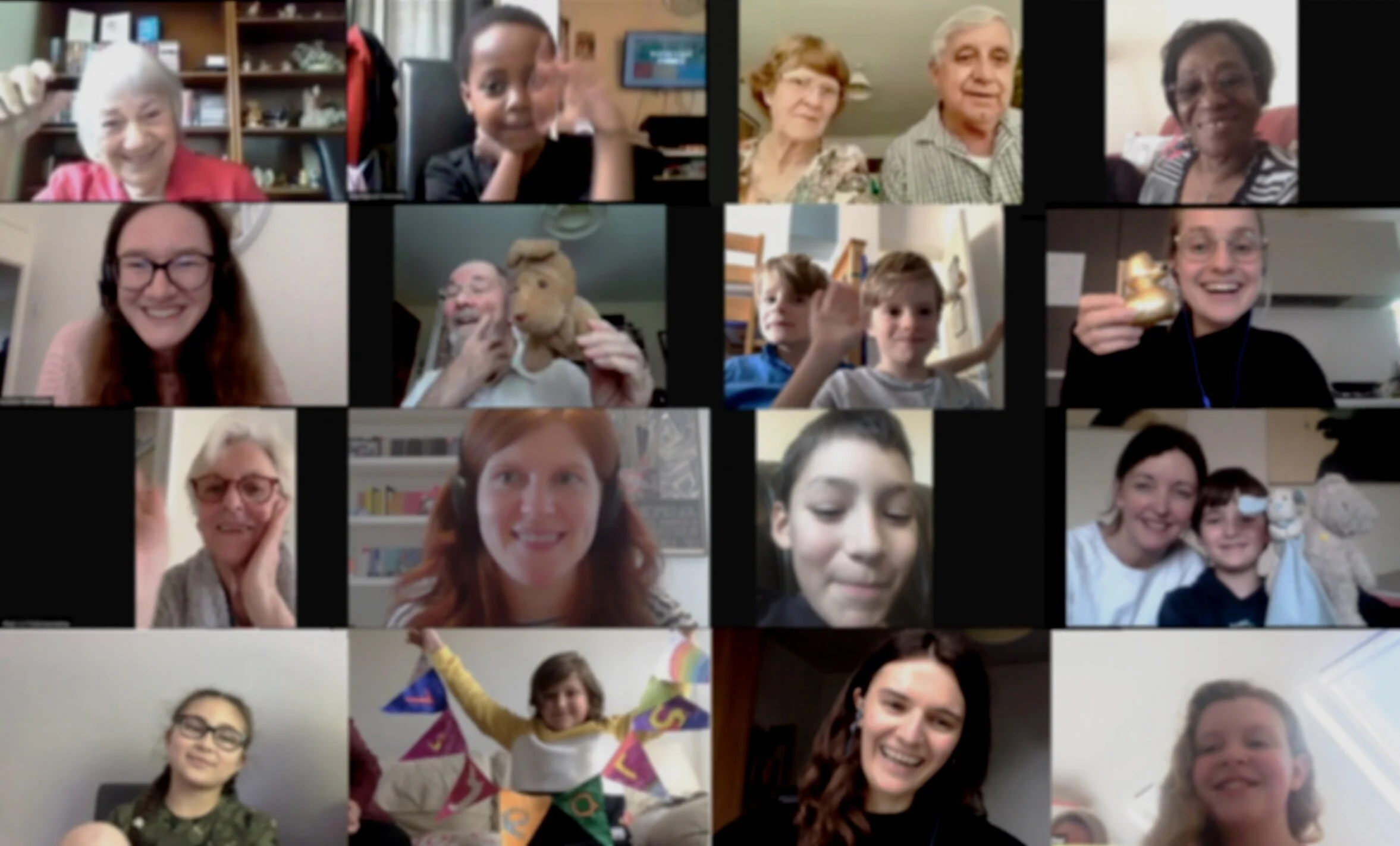We’ve partnered with Clarion Futures to research the impact of Covid-19 on intergenerational initiatives and relationships across the UK. Read our full report here.
From the very start of the pandemic, it was clear that Covid-19 would have a significant impact on intergenerational connection. As the population went into lockdown, many families and communities were physically separated from one another. Existing intergenerational initiatives rapidly shifted their delivery to accommodate new social distancing measures, while grassroots projects multiplied and ‘mutual aid’ fast became part of our collective vocabulary.
We wanted to better understand how organisations which seek to bring generations together have adapted to life under Covid-19. We also wanted to know how individuals in communities have experienced intergenerational connection during this time. We started working with Clarion Futures to explore these themes.
In researching our report, we spoke to a range of stakeholders from charities, volunteer hubs, housing associations and local communities. We were inspired by some of the stories we were told. We heard about the volunteers who regularly shop for their older neighbours in isolation. We learnt of the grandparents who read bedtime stories over Zoom, while reassuring the younger generation that ‘this too shall pass’. We spoke to the parents who send pictures of their toddlers to care homes that they are no longer able to visit. We found out, too, about innovations in project delivery - the social clubs that have gone online and the digital systems that match the needs of vulnerable people with donations in real time. We also learnt of the work that could not withstand the crisis - the closures of all-age public spaces, and the pausing of all face-to-face intergenerational initiatives.
It is hard to predict what the legacy of Covid-19 will be on intergenerational work in the UK. Our report highlights a number of key themes that Housing Associations and other organisations invested in community development can reflect on going forward.
With some social distancing measures set to continue for a long time, it’s clear that there is much work to do on digital inclusion, enabling online connections to reach more people, while continuing to offer offline projects so the most isolated aren’t left behind. In our communities, we must work to sustain the local support networks that have formed during the crisis in the form of mutual aid, grassroots groups, and more ad hoc or informal arrangements between neighbours. As we suffer the inevitable grief and deprivation that the virus will sadly bring, it is more important than ever that we foreground intergenerational solidarity, rather than pitting age groups against one another.
We believe that an intergenerational recovery is possible: one where people of all ages and across all parts of the community can be brought closer together rather than driven further apart. Housing can play a role in this as we rebuild our communities after the crisis. The sector should seek to shape a narrative that unites generations, support intergenerational projects and create age friendly environments as we recover. In this way, it can help to sustain some of the connections between young and old that have weathered the crisis, as well as facilitating new ones.


